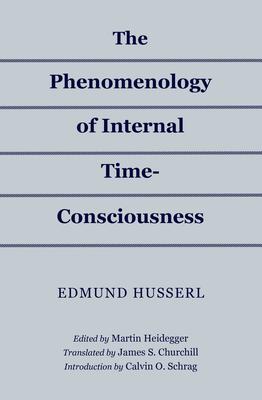The Phenomenology of Internal Time-Consciousness is a translation of Edmund Husserl's Vorlesungen zur Phnomenologie des inneren Zeitbewu tseins. The first part of the book was originally presented as a lecture course at the University of Gttingen in the winter semester of 1904-1905, while the second part is based on additional supplementary lectures that he gave between 1905 and 1910. In these essays and lectures, Husserl explores the terrain of consciousness in light of its temporality. He identifies two categories of temporality--retention and protention--and outlines how temporality provides the form for perception, phantasy, imagination, memory, and recollection. He demonstrates a distinction between cosmic and phenomenological time and explores the relevance of phenomenological time for the constitution of temporal objects. The ideas Husserl developed here are explored further in his Ideas and were pursued until the end of his philosophical career.

The Phenomenology of Internal Time-Consciousness is a translation of Edmund Husserl's Vorlesungen zur Phnomenologie des inneren Zeitbewu tseins. The first part of the book was originally presented as a lecture course at the University of Gttingen in the winter semester of 1904-1905, while the second part is based on additional supplementary lectures that he gave between 1905 and 1910. In these essays and lectures, Husserl explores the terrain of consciousness in light of its temporality. He identifies two categories of temporality--retention and protention--and outlines how temporality provides the form for perception, phantasy, imagination, memory, and recollection. He demonstrates a distinction between cosmic and phenomenological time and explores the relevance of phenomenological time for the constitution of temporal objects. The ideas Husserl developed here are explored further in his Ideas and were pursued until the end of his philosophical career.